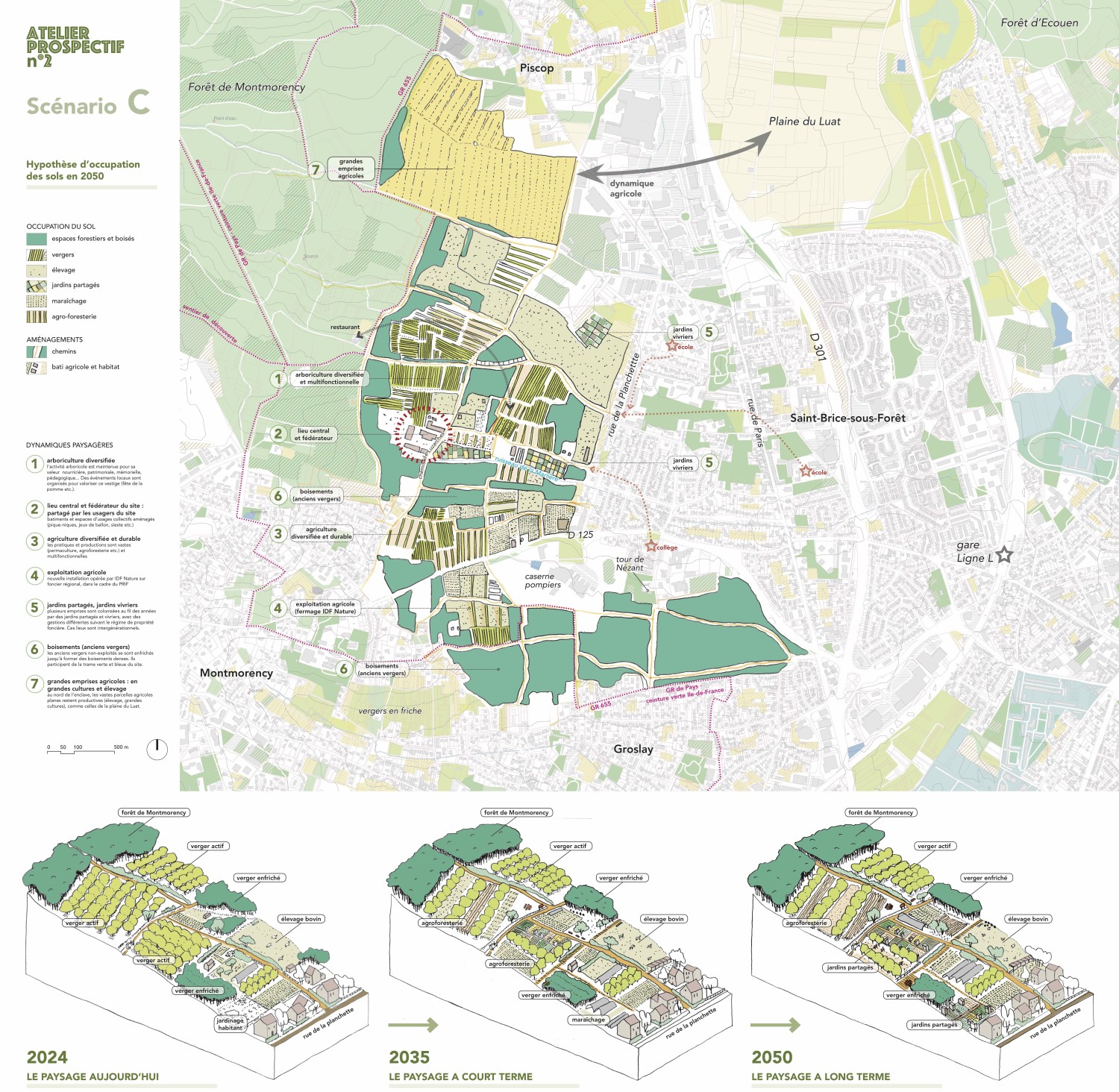Co-designing agroecological landscapes
Designing collectively agroecological landscapes.
Looking back on an urban prospective experiment in the Greater Paris
This contribution offers feedback on a collective territorial foresight exercise that I organised and codesigned as part of my PhD research. The aim of this exercise was to link academic research to the operational world and shed light on how the agro-landscape project can constitute a negotiated process that changes the urbanism framework. The method used enabled a group of stakeholders to define the conditions for thinking about and implementing a rapprochement between the agricultural project and urban planning.
This experiment was conducted on the Coteaux de Nézant and Mont de Veine arboricultural site (approximately 200 ha), 17 km from Paris, characterised by its uncertain future due to political inertia, significant decline, and retirements of farmers without successors. It took place in several stages, culminating in the development of four contrasting scenarios for the site's evolution, involving two main variables: involvement of public actors and dynamics of agroecological transition. Four scenarios were drawn up, ranging from the total disappearance of agriculture to ambitious agricultural reconquest.
The main contribution lies in the proposed method, which explores the future in order to co-design agroecological and urban projects in the present. This design process – combining territorial foresight and landscape architecture – made it possible to examine the capacity of the agroecological project to rebuild links between agricultural and urban spaces, to the point of creating a territorial project. Indeed, two of the scenarios, based on agroecological practices, promote dynamics of reterritorialisation. The landscape project then emerged as an intermediate design object around which the future of a territory is discussed. The involvement of designers, particularly landscape architects, would then facilitate the development of a shared project, in a context where the values of soil, resources and the commons are reinvented through collective action and individual ingenuity.
This experience thus reveals levers for concerted action with farmers, public stakeholders, and representatives of the agricultural world and of the civil society to renew the tools and methods of agriculture and urban planning.
The presentation will revisit the use of key concepts, such as agriculture amplified (through agroecology associated with spatial project), and co-benefits, borrowed from climate policies, which have gradually become established in this PhD research to renew the interdependence between cities and agriculture from a multifunctional and systemic perspective. Thinking in terms of co-benefits therefore opens up a path for reflection and action to activate territorial solidarity and complementarity. They allow us to think about urban agriculture in a broader way, going far beyond food production alone.
Axelle Thierry is an architect and landscape architect, lecturer at ENSA Normandy, permanent researcher at the ATE laboratory (ENSA Normandy) and associate researcher at LAREP (ENSP Versailles). She analysed the relationship between agriculture and urbanism in her landscape PhD, defended in February 2025 and entitled "Negotiating agriculture in the Greater Paris archipelago. A prospective survey of agro-ecological urbanism and its co-benefits through landscape design" (supervised by Sylvie Salles / co-supervised by Rémi Janin / at LAREP-ENSP).
← go back to
the programme
Illustration →
Axelle Thierry, Plan prospectif, 2024
